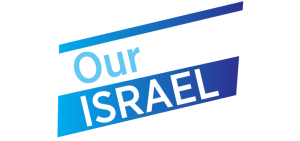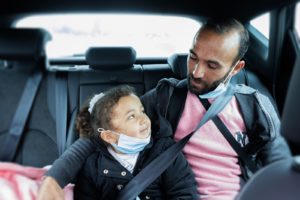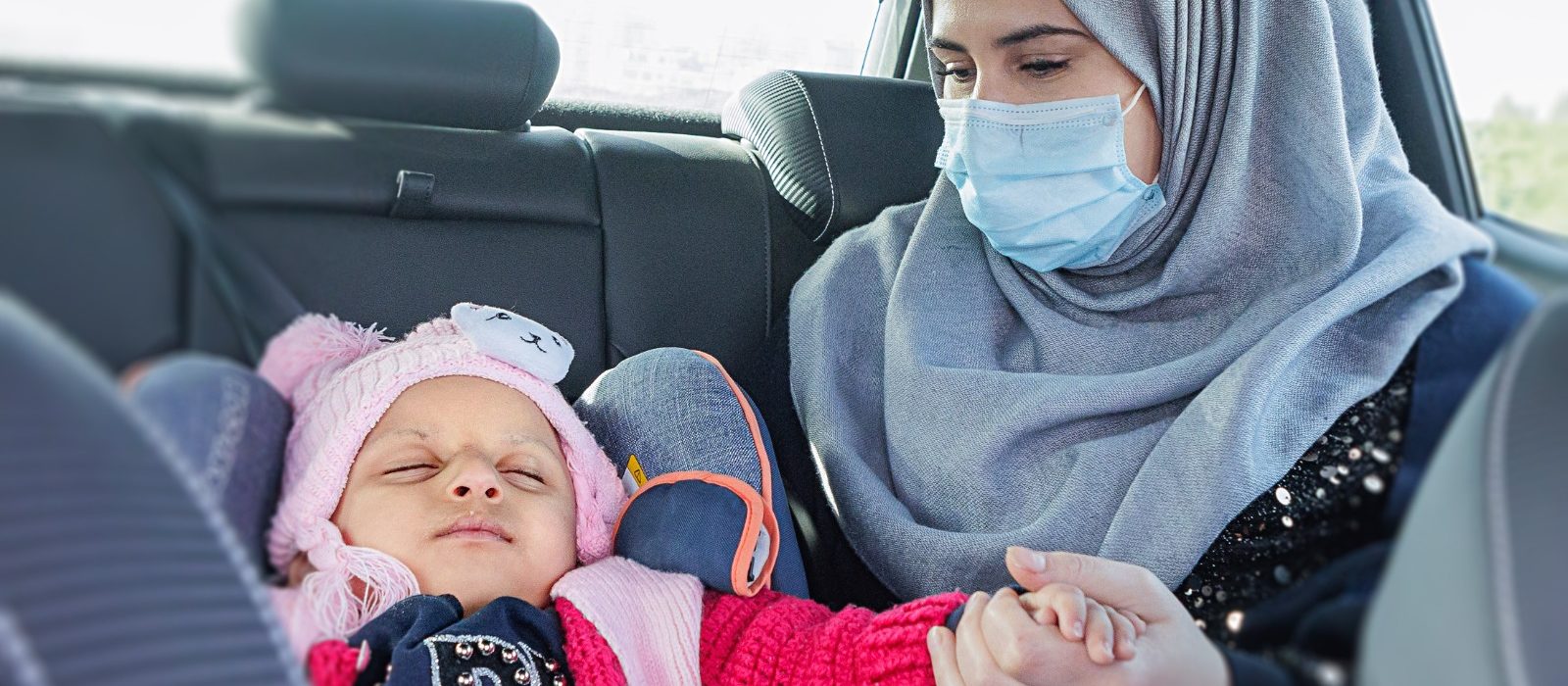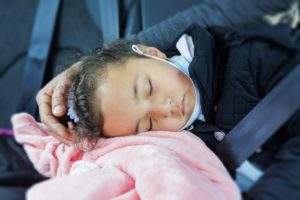- About Us
- Policy Center
- Learn
- Press Room
- Blog
- Get Involved
- Donate
- Donate to J Street Online
- Make a Gift in Someone’s Honor or Memory
- Make a Monthly Gift
- Tax-Deductible Donations
- Giving by mail

J Street’s “Our Israel” project spotlights the amazing Israeli groups who share our progressive vision for Israel, and who are helping build a society underpinned by the founding values of democracy, self-determination and equality which are enshrined in Israel’s Declaration of Independence.

The sun is setting on another day as Naama Goraly drives back from work. It’s no ordinary drive. It will end with her dropping off a young woman with a genetic blood condition at an Israeli military checkpoint, where the patient will cross the border into the West Bank to meet her family and go home.
It’s a familiar route. Naama has been driving the woman to and from her appointments at a Tel Aviv hospital for over seven years.
Every year, the volunteers at Road to Recovery make thousands of similar trips, bringing Palestinians in the West Bank — mostly children — to vital medical appointments in Israel. Since Israeli authorities often only grant entry permits to children in need of care and not their caregivers or their vehicles, volunteers end up offering both practical transport and emotional support and reassurance.
“Driving people from the other side, there’s something magical about it,” says Goraly, who is both a volunteer driver and the group’s CEO. Every day, more than 70 volunteers — out of a total of over 1,000 — make the trips.
The group was started in the mid 90s.
After losing his brother in 1993, the organization’s founder Yuval Roth joined the Parents Circle – Families Forum, which brings together Israelis and Palestinians who have lost a close family member as a result of the prolonged conflict. One day, a Palestinian member of the Forum asked Roth for his help getting his brother, who had a suspected brain tumor, to an Israeli hospital, as he had no way to get there. After agreeing, he was approached by another family in the same village whose children needed a ride to receive necessary bone marrow transplants. Roth realized an opportunity to create an organization that could address this gap in care while bringing Israelis and Palestinians together.
While the Palestinian Authority pays for their treatment, taxis to the hospitals can cost anything from 150 to 400 shekels ($41 to $110) each way – a prohibitive burden for many in a Palestinian economy struggling with the burdens of occupation, coronavirus and stunted development.

While Road to Recovery works to address issues caused by Israel’s decades-long occupation of the West Bank, the group is strictly apolitical.
It’s a position which allows for volunteers from all backgrounds to feel empowered to get involved. Their volunteers include leftists, Orthodox Jews, and even Israelis who live in settlements. In recent years the group has been recruiting many Israeli volunteers from communities near the Gaza Strip that live under threat of rocket fire. These Israelis drive Gaza residents to nearby hospitals. “Even when they’re getting bombed, and there are sirens, they still go to the checkpoint to pick up patients.”
When a volunteer once asked Goraly why they don’t fight for or against certain policies she responded, “we don’t fight anybody, we bring people together.”
The drives for patients and volunteers are often long. “These drives are always meaningful, but they can be meaningful in different ways,” explains Goraly. Whether they speak the same language or can have a conversation, or sit with the music on or sit quietly and simply share the same space, she says that the impact of these drives on both patients and volunteers is always emotional and nourishing. “Many times they just fall asleep, because they woke up at four o’clock in the morning and they’ve been in the hospital all day. And I feel honored that they allow themselves to fall asleep in my car. That they feel safe enough.”
After being driven by Road to Recovery volunteers, patients are picked up by family on the other side of a checkpoint. That’s because Palestinians need special permits to drive their own cars into Israel – and these permits are also very difficult to come by. Between the years 2000 and 2015, Israel did not allow any Palestinian cars to travel across the Green Line. Now, permits to enter are granted primarily for doctors or laborers who work in Israel – but they are not commonly given to those seeking medical care.

Years of occupation and restrictions on freedom of movement and trade have limited Palestinian economic development and the strength of the health system.
The Palestinian public health system continues to lack sufficient infrastructure to serve the enormous population in need of medical care. Years of Israeli restrictions on imports by Israel, especially in Gaza, have left the Palestinian hospital system with critical shortages of supplies like medical equipment, prescription drugs, over-the-counter medications and protective gear. With the occupation making it nearly impossible for new Palestinian construction and development to move forward, many hospitals and clinics are in a state of disrepair. Even infrastructure built by NGO’s and foreign aid is sometimes subject to demolition by Isaeli authorities.
These challenges in care are complicated by demographics, with roughly half of the Palestinian population under fifteen years of age. Children seeking care in Israel require permits to enter, but their parents’ permit requests are often denied or delayed. A father whose five year old child was diagnosed with brain cancer told Al Jazeera “We, her own parents, were not permitted. What kind of law allows this to happen?”
The bonds built between Israelis and Palestinians through Road to Recovery are ones that often last years. A few weeks ago, Goraly picked up the young woman with the blood condition and her mother from the hospital – but rather than them all heading back to their homes, they went to the beach. Another young woman named Marie, who has an orthopedic condition and uses a wheelchair for mobility, has built a long-lasting relationship with Yuval. Now fifteen years old, Yuval has been driving her since she was five. Often, staff and volunteers watch as these children grow up in front of their own eyes.
Not all of the children get the chance to grow up.
When a child the organization has supported passes away, they work to continue that support for the bereaved families. Volunteers frequently attend memorial services throughout the West Bank. “Their whole family and their whole village are there. And we feel incredibly welcomed. There’s no wall, no fence, no hate, and no fear. And it’s beautiful,” Gorarly says.
That’s what Road to Recovery is about,
Since the organization’s founding over seven years ago, its work has created tens of thousands of connections between Palestinians and Israelis, forging personal bonds at unparalleled levels in the context of everyday life in Israel and Palestine. For those involved, Road to Recovery is as much about the recovery of mutual respect, trust, dialogue and friendship among Israelis and Palestinians as it is about health and medical support.
“On both sides, from the day you are born, you are being taught not to trust the other side,” says Goraly. “For me, every new volunteer means somebody whose beliefs have been cracked. And that means I did my job.”
To learn more about Road to Recovery and to support their mission visit their website here.